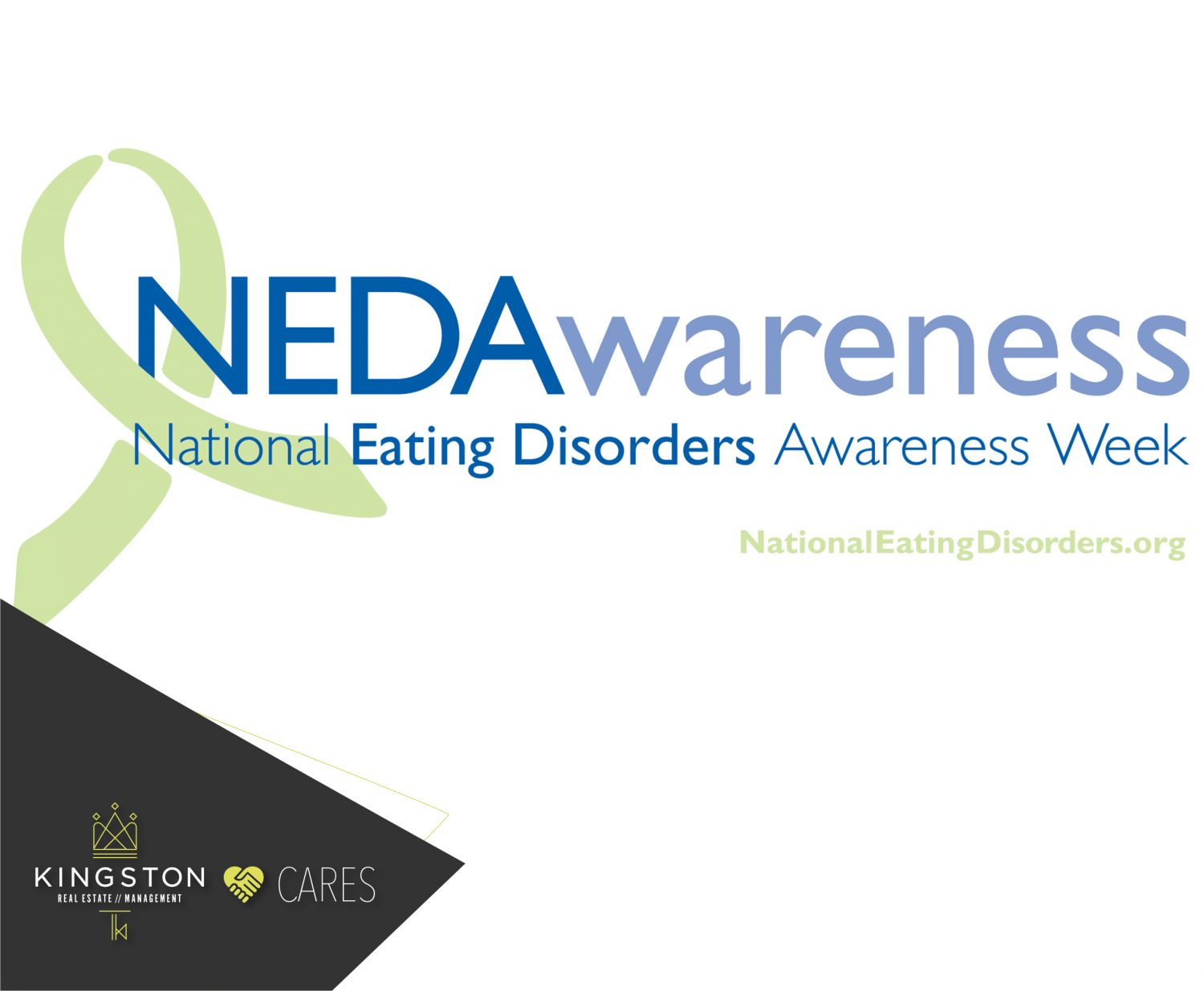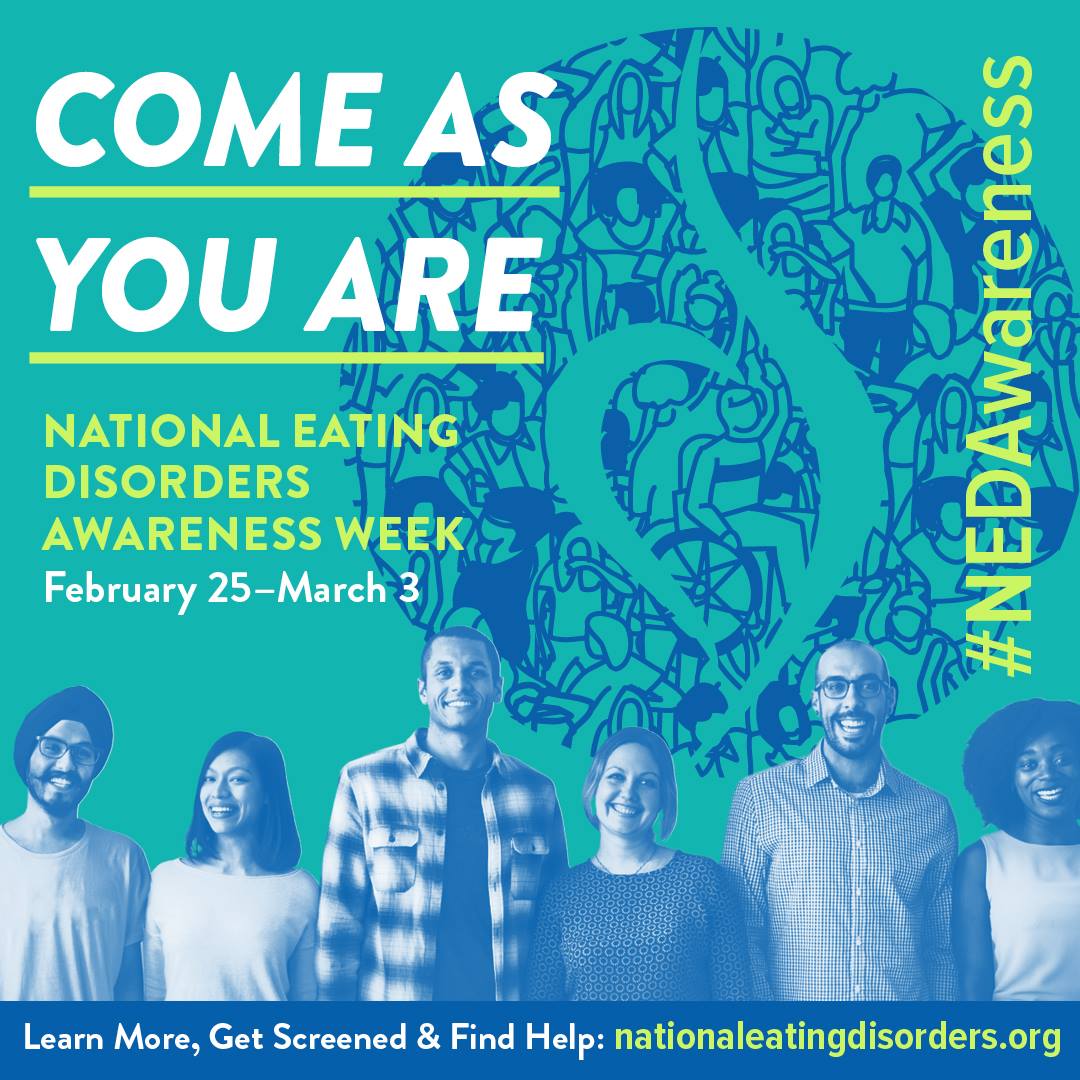
#kingstoncares about you & you care about the ones you love. Chances are, you know someone in your life who struggles with their relationship with food. If that’s the case, please read this.
•
This week (2/25-3/3) is National Eating Disorder Awareness (NEDA) week. 2019 NEDA’s theme is “Come As You Are” which “highlights the movement towards inclusivity in the greater Eating Disorder community and our goal of unifying the field of eating disorders.”
•
There are several resources/places/people you can and should look to or contact for help when dealing with the struggle associated with eating disorder but we’re going one step further for you. We’re lucky enough to know an incredible, caring and passionate person who happens to be a Licensed Dietician/Nutritionist and is also extremely knowledgeable about this subject in particular. Her name is Sydney Bates ( @syds_healthscoops ) and she was kind enough to offer our followers some insight/input/advice while bringing overall sensibility into the fold.
•
We asked @syds_healthscoops to contribute to this #kingstoncares installment and, per usual, she went above & beyond. Below are her comments in full:
What do you picture when you think of eating disorders? Perhaps a starkly thin, young, Caucasian female as depicted in the movies or a certain Netflix documentary? Contrary to popular belief, eating disorders do not discriminate- they affect people of all ages, genders, socioeconomic status, race, etc. The point is, eating disorders do not have a “look”, and can exist in ALL body shapes and sizes. They have the highest mortality rate of any mental illness, and those who suffer from one are at risk for serious physical and psychological consequences and are likely experiencing internal turmoil. They are not a choice, fad or a “phase”, there are numerous genetic, environmental, and biological factors that can contribute to the development of an eating disorder.

On top of that, so many eating disorders go undiagnosed, oftentimes because the sufferer is ashamed due to existing stigma surrounding ED’s, fearful of shining a light on their biggest secret, or feel they aren’t “sick enough” to deserve help. The fact is, eating disorders exist on a spectrum of severity, and disordered eating tendencies are often praised in our diet-obsessed culture. Our society’s obsession with the thin ideal and fat phobia perpetuates disordered behavior with food and exercise, which is a large reason why so many go unchecked.
Treatment for an eating disorder goes far beyond getting the individual to eat normally. Oftentimes, it’s not about the food at all. A professional, multidisciplinary intervention is prudent to provide structure, support and supervision as the individual undergoes nutritional rehabilitation as well as mental and spiritual healing.
Intuitive Eating and Health at Every Size, which exist hand in hand, are a paradigm shift in how we approach health. These movements are a framework aiming to bring individuals home to their bodies, to eat and move in a more attuned way, rather than focusing on external measures of success based on diet culture’s problematic pressures. Intuitive Eating is based on principles that focus on ditching the diet mentality and tuning into internal cues for eating and movement. Health at Every Size recognizes that size diversity exists, and that weight is not a reliable indicator of health. While someone with an eating disorder might not be ready for this approach, it can be life changing for anyone struggling with food peace and body acceptance.
How you can do your part:
- Avoid commenting on others’ bodies. Those seemingly harmless remarks of “Oh ,you look great, have you lost weight?” or, “I wish I was as skinny as you!”, can be potentially harmful and triggering, not to mention make both parties feel self-conscious. You never know what’s beneath the surface. Those comments could be just the validation that individual was looking for.
- Compliment people on things that have nothing to do with their appearance. Did they recently achieve something professionally? Go on a trip you’re curious about? Do something noteworthy? Dig deeper than the facade!
- Avoid discussing your weight or dieting pursuits with others. Your intentions may be sound, but its better just to leave weight and diet talk off the table. Everyone will be grateful for the change of pace!
- If you’re a parent, be conscious of how you talk about food and your body at home. Language matters, and the best way to help your child have a healthy relationship with food and body is to model that with yourself.
- Know the signs and symptoms of eating disorders so you can recognize them when you see them. If someone you care about is showing signs, express your concerns. No one deserves to struggle in silence.
- If you or someone you love is struggling with an eating disorder, reach out. You deserve help. There’s no such thing as being “sick enough” for treatment. Recovery IS possible, and while the process is not easy or liner, there is so much hope.
Here’s how YOU can help- we’ll make it nice and easy for you. First, we suggest you follow @syds_healthscoops and get familiar with the subject. Next, visit NEDA’s website for further insight and information on the week ahead. If you know anyone who you think may have an unhealthy relationship with food (remember, an eating disorder doesn’t have to be “severe” in order to be problematic!), DM them this post or share content from @syds_healthscoops IG posts/stories. Sometimes just a little conversation starter makes all the difference.
•
#kingstonrem #kingstoncares
Photo cred/content @syds_healthscoops@neda
Resources:
Intuitive Eating by Evelyn Tribole and Elyse Resch
Health at Every Size by Linda Bacon
Eating in the Light of the Moon by Anita Johnson
8 Keys to Recovery from and Eating Disorder by Carolyn Costin
Overcoming Binge Eating by Dr. Christopher Fairburn
Unbearable Lightness by Portia De Rossi
Brave Girl Eating by Harriet Brown
Sick Enough by Jennifer Gaudiani
Body Respect by Linda Bacon
Podcast: Food Psych by Chrissy Harrison
If you are struggling with an eating disorder but unsure of where to get help, consider calling the toll-free helpline at the National Eating Disorder Association at 1-800-931-2237. Helpline volunteers are trained to help you find the support and information you might need to begin your recovery journey. You can also use the NEDA Screening tool to help you determine if it’s time to find professional help.
